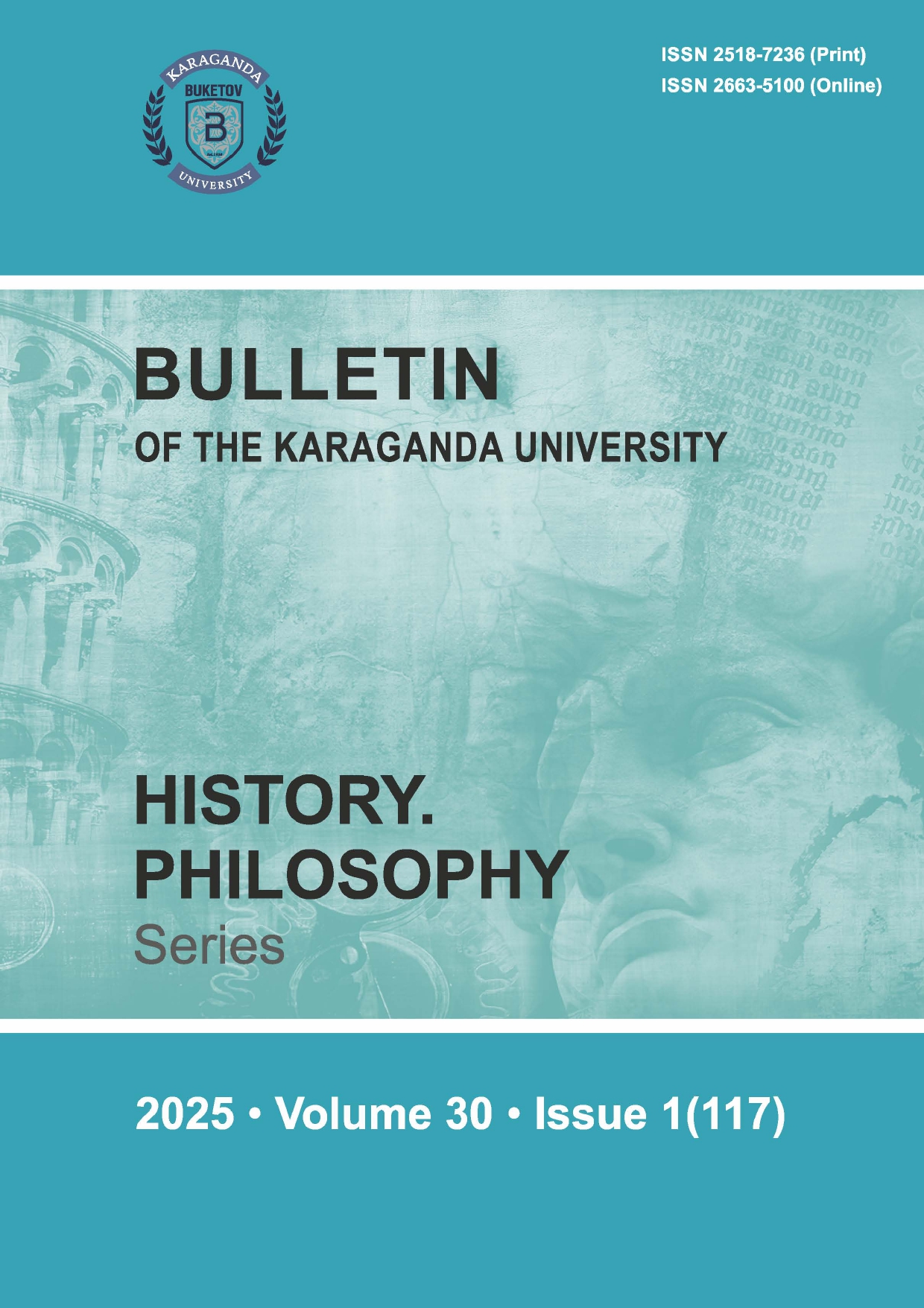Phenomenon of mass migration during the famine years: existential experiences in the kazakh worldview
DOI:
https://doi.org/10.31489/2025hph1/321-329Keywords:
hunger, migration, struggle for existence, existential thinking, suffering, human existenceAbstract
In 1932-1933, as a result of the famine in the USSR, there was a tragic transition from the Kazakh land tonear and far countries. As a result of the sedentarization, the Kazakh people not only underwent a transfor-mation of their national identity, traditions, and original spirit, formed over many centuries, but also as a na-tion, they were on the verge of disappearing from the historical scene of humanity. The “Great relocation”who migrated to the countries of the near and far abroad are distinguished by their difficulties. It is necessaryto take into account the traditions and customs of other countries, to get used to the language and mentality, tofind work in a foreign place, which caused significant contradictions. However, thanks to perseverance andthe vast majority of descendants returned to their native land. The article describes the problems of rapid re-location that took place as a result of the struggle of the Kazakh people for existence and the consequences ofthe famine years. Special attention was also paid to the mass migration of the Kazakh country, which as a na-tion is on the verge of total extinction, especially from the consequences of famine to other countries. Alt-hough the phenomenon of mass migration during the famine years has been studied in the historical field,there is no philosophical discussion. Therefore, the study of the existential nature of the causes and purpose ofleaving one’s own country and land involuntarily and moving to one’s own country requires interdisciplinarydiscussion. This will allow us to take into account the interests of our compatriots who have returned to theirhistorical homeland.




